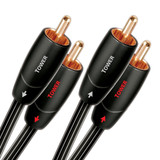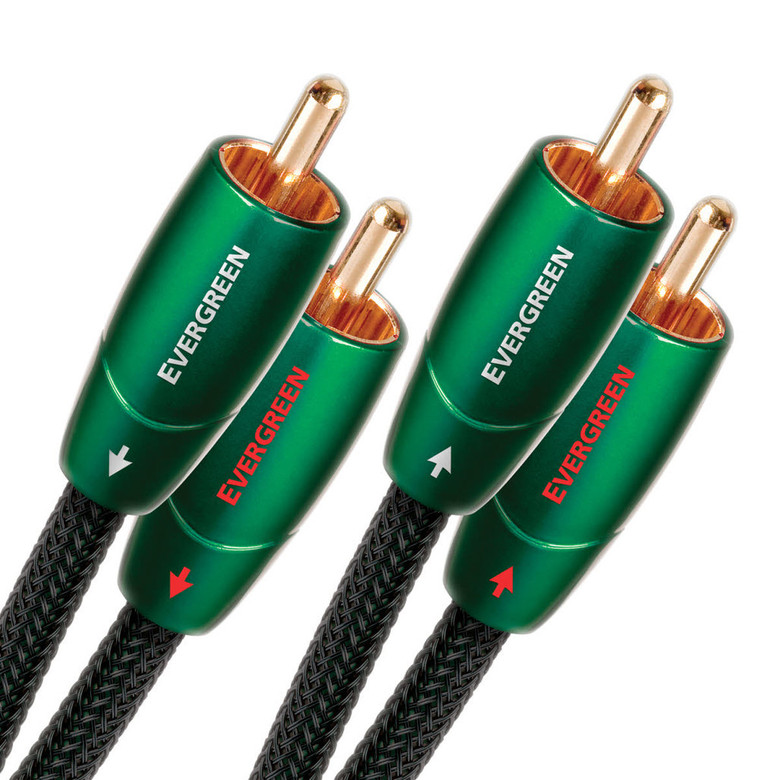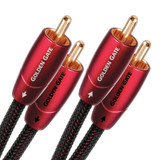The highly affordable, high-value AudioQuest Evergreen analog audio interconnect has solid Long-Grain Copper (LGC) conductors and uses asymmetrical double-balanced geometry, delivering lower impedance to the ground. Evergreen also features foamed-polyethylene insulation, cold-welded, gold-plated plugs, and a Metal-Layer Noise Dissipation System for powerful sound.
Solid LGC Conductors - Conductor material quality makes a world of difference in the sound of an audio cable. Since the surface of a conductor has 100% current density at all frequencies, the surface most defines the sound quality of the whole conductor. The less complicated grain structure and fewer impurities within Evergreen's LGC copper significantly reduce distortion compared to normal high-purity copper.
Solid Core Conductors - Strand interaction is the single greatest cause of distortion in cable, and one of the easiest to avoid. Whenever current crosses the oxidized contact between bare strands, the signal will be altered. In addition, the magnetic fields of the various strands are constantly interacting, causing confusion (smearing) and causing the contact pressure between strands to be constantly modulated. AudioQuest's solid core conductors are the complete solution to this problem.
AudioQuest Noise-Dissipation System -Noise, in the form of RF energy, is the mortal enemy of good sound. Our environment is more contaminated with RF than ever before due to the huge proliferation of RF radiating devices like computers and mobile phones. Traditionally, RF energy is routed to ground through the use of a 'shield" consisting of either a braided metal or foil. This 'draining' of RF to ground causes a modulation of the ground plane, which in turn causes a form of signal modulation. AudioQuest's Noise-Dissipation System greatly reduces the effect of this modulation. Metal, used in a passive manner, acts as a method of dissipating and reducing the incoming RF. The result is dramatically less modulation of the signal, less distortion and better sound.
Cold-Weld System - Making the perfect connection between conductor and connector is not a simple process. There are three accepted ways to make the connection between a cable and its termination. Solder is by far the most common method of connection. Resistance welding is clearly superior to even the best solder. However, just as solder introduces an inferior layer of differing material, causing distortion and reflections, so does welding. The alloy created at the interface of cable and plug is far superior to solder, but it is still an undesirable intermediary layer. After so much attention to the quality of the conductor and connector, the contact system deserves just as much consideration. AudioQuest's Cold-Weld System solves this problem with a superior connection that insures that the structural integrity of the conductor is kept completely intact. The Cold-Weld System refers to a combination of high pressure at the point of contact and the use of silver impregnated paste.
Foamed Polyethylene Insulation - Evergreen's polyethylene insulation, foamed to include as much 'air' as possible, provides superior clarity and dynamics








